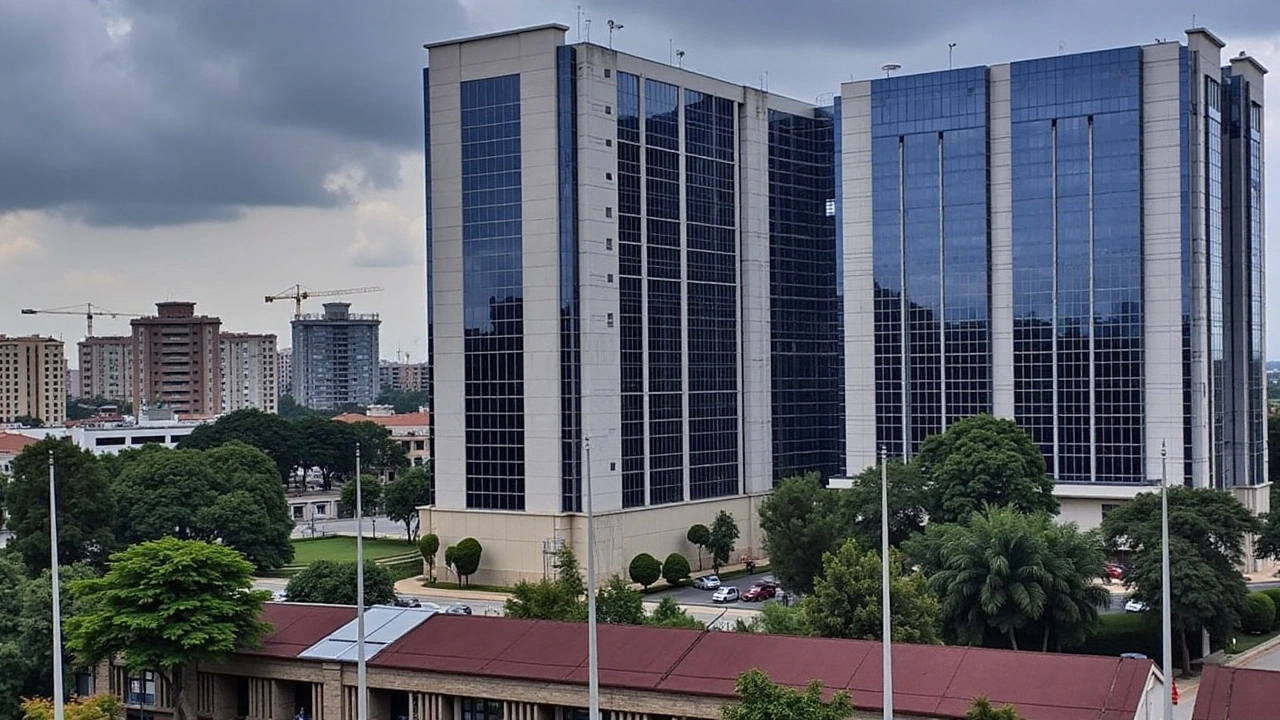CBN's Ongoing Transparency Concerns: Unpublished Annual Reports
 Dec, 17 2024
Dec, 17 2024
Introduction
The financial landscape of Nigeria is presently grappling with a significant concern: the Central Bank of Nigeria (CBN) has not released its annual reports since 2018. This lapse has sparked a turbulent wave of criticism aimed at the bank's transparency practices while raising serious questions about its governance. Stakeholders, economists, and citizens alike are seeking clarity on the reasons behind this unprecedented silence, which is seen as a stark deviation from the CBN's operational norms and international standards.
Background of the Issue
Traditionally, the CBN has adhered strictly to statutory obligations requiring it to publish its annual financial health check. These reports encompass a comprehensive review of the bank's fiscal activities, lending insights into its roles in managing government deficits and its broader economic responsibilities. However, the conspicuous absence of these publications in recent years has opened up a Pandora's box of speculations. Accusations have surfaced, suggesting covert financial practices and concealment of fiscal mismanagement, stirring up public and professional distrust of the institution.
Speculations on CBN's Financial Practices
Amid the debate, the CBN's transparency and its foundational ethics have been thrust into the spotlight. Analysts have raised the alarm over the massive funding the bank is alleged to furnish for government deficits, questioning the legality and prudence of such financial engagements. Without the annual reports, the extent and nature of these operations remain cloudy, triggering a clamorous demand for elucidation. Concerns over unauthorized financing activities that potentially breach legal limitations and ethical boundaries are rife, adding urgency to calls for transparency.
Impact of Non-Transparency on Economy and Governance
From an economic perspective, the implications of the CBN's opacity are far-reaching. These annual reports serve as a barometer for the bank's performance and its impact on the national economy. Their absence creates a substantial knowledge gap, hindering economists and policymakers from making informed decisions. Beyond the numbers, such secrecy calls into question the CBN's governance, its policy decisions, and its commitment to the nation’s economic stability. Global stakeholders view these omissions as a deviation from international practices, potentially impacting investor confidence and international relations.
Calls for Accountability and Reforms
The outcry has not been one-dimensional. Various advocacy groups, economic think tanks, and financial commentators have been vociferous in their demands for reform. They argue for an overhaul that would break down the walls of opacity, calling for a structure that ensures the CBN operates within well-defined, transparent boundaries. By reintroducing its fiscal reports, the bank can rehabilitate its waning trust among the populace and stakeholders, reinstating a much-needed sense of accountability and responsible governance.
Potential Solutions and the Way Forward
So, what steps can be taken to bridge this transparency gap? For starters, renewed oversight mechanisms could enforce compliance with statutory publication requirements, deterring future omissions. In tandem, an independent audit body could be instituted to review and verify the bank's financial dealings, ensuring they align with fiscal responsibility. Furthermore, the establishment of a transparent review process might engage public accountability forums where CBN's policies and actions can be scrutinized and discussed openly.
Public perception plays a critical role as well. Rebuilding trust in the CBN requires not just disclosures in the form of reports but proactive engagement, where the bank communicates its strategies, challenges, and successes in navigating the complex Nigerian economic terrain. This approach could position the CBN as a more open entity committed to fiscal transparency and responsibility.

Conclusion
In conclusion, the need for transparency has never been more vital. For the CBN, this is an opportunity to turn a new page—one that sheds light on its internal workings and reaffirms its role as a pivotal pillar in Nigeria’s financial system. As calls for transparency and accountability crescendo, the bank stands at a crossroads. Its response, or lack thereof, will significantly influence public trust and its operational credibility in the years to come. Ultimately, reinforcing transparency through compliance with best practices could set a new standard, aligning the Central Bank of Nigeria with international financial administrative norms, and paving the way for a robust and resilient economic future.